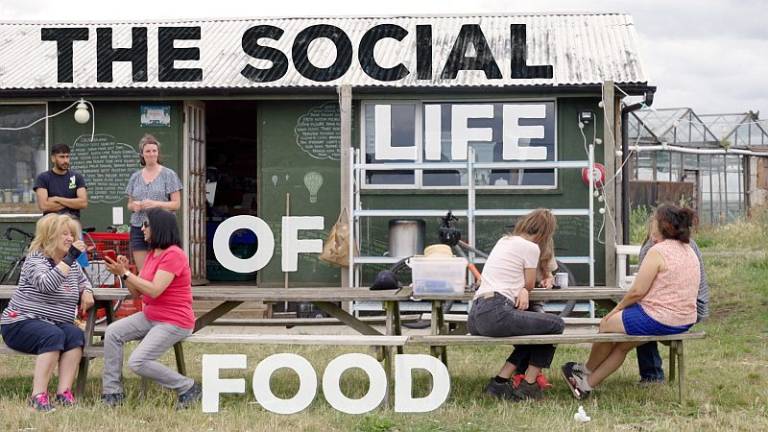Fostering community food resilience through mutual aid networks and co-operatives
Examining the role played by mutual aid networks, grassroots movements and co-operatives in building local resilience, justice and food security in London.

1 September 2022
Food insecurity is traditionally associated with developing countries. But decades of austerity have seen food bank use rise in the UK by 81% (Trussel Trust, 2022), with more than a third of food globally going to waste a year (UN SDGs, 2022).
The project examined the role played by mutual aid networks and co-operatives in building local resilience and food security in London. It tried to understand the social psychological factors (values, beliefs, and motivations) that lead practitioners to get involved in such groups and identified the drivers (including policy, change, resourcing, and technologies) and challenges faced by the groups.
Through a mixed-methodological approach, Dr Firth and Dr O’Dwyer conducted a mapping exercise to identify the scope and diversity of mutual aid and co-operative food justice groups in London. They undertook a literature review and created an extensive Zotero bibliography of literature on the roles played by mutual aid networks and grassroots movements in food security, justice, and resilience. The background research helped inform the questions asked in semi-structured interviews with twenty participants in sixteen different groups of co-operatives, grassroots and mutual aid organisations involved in food justice and resilience) to understand the values, beliefs, and motivations that lead practitioners to get involved with the organisation.
Their initial findings identified themes in the data, including the diversities of activities undertaken by these groups, the variety of organisational and legal models used and the benefits and challenges of the different models. Their findings also highlighted the areas around London where activities were taking place, including particular hotspots.
The funding commissioned a filmmaker to produce a documentary film showcasing the work of three participants in the interviews, shown in a series of film screenings and workshops (including at the Anarchist Bookfair) with academics, practitioners, and activists to discuss the future of work in the area. An end-of-project public and practitioner engagement workshop was held to launch the documentary film. Several members from participant groups have created a mailing list for collaboration and networking due to attending this event.
The research team are in the process of writing three journal articles:
- Dr Rhiannon Firth on ‘Political outlooks and ideas around forms of means of social change and prefiguration’ for Social Movement Studies.
- Dr Emma O’Dwyer on ‘Motivations and values’ for Social Psychology.
- James Fox on ‘Opportunities and challenges of different forms of organisation’ for Organisation Studies.
 Close
Close


